group
members of the Neural Computations Research Group at Mila
Postdocs

Colin Bredenberg
(co-supervised by Blake Richards)
I am a postdoc working in theoretical neuroscience, using mathematical tools from machine learning to understand how learning in the brain works. In particular, I am currently investigating how mice learn, through synaptic plasticity, to control brain-computer interfaces to receive rewards in experimental settings. In my free time, I particularly enjoy creative writing.

Ryan Vogt
(co-supervised by Numa Dancause)
I am a postdoctoral researcher in computational neuroscience interested in the population dynamics of neuronal signals in the brain across different contexts. I develop methods for analyzing the structure of the dynamics in the motor and premotor cortices of non-human primate brains during precision motor tasks. I received my PhD in Applied Mathematics from the University of Washington, for which I characterized the relation between Lyapunov Exponents of RNNs and their performance on and learning of a task. I love to study languages, ride my bike, travel to new countries, and mix cocktails.
PhD students
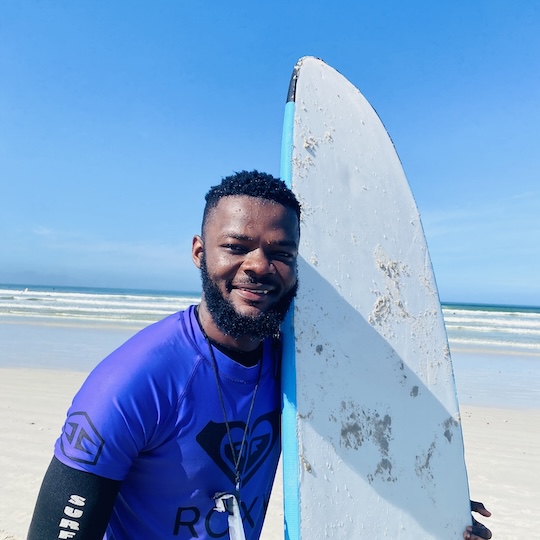
Abdel Mfougouon Njupoun
(co-supervised by Blake Richards)
I am a PhD student in Applied Mathematics with a research focus at the intersection of Artificial Intelligence and Neuroscience. I have an interdisciplinary background in Mathematics, Robotics, and Engineering in Robotic Systems. I am passionate about understanding how the brain works and enthusiastic about using mathematics to explore complex systems. I love all kinds of sports, especially soccer. I also love watching documentaries.
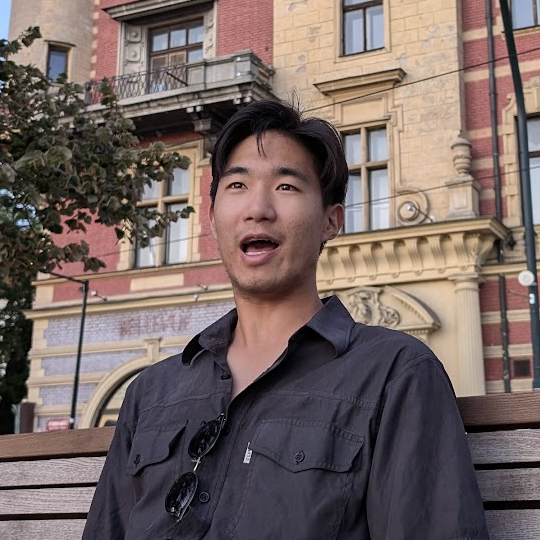
Avery Hee-Woon Ryoo
(co-supervised by Matthew Perich)
I am a graduate student passionate about deep generative models, particularly their applications in medicine and science. I aim to use ideas from deep learning, multimodal learning, and dynamical systems theory to design generative frameworks that are faster and more sample-efficient — a crucial step in mitigating the widening resource disparity in an era of increasingly large models. My other interests include neuroprosthetics, in-context learning, the Toronto Raptors, and disagreeing with Nanda on a variety of unimportant topics.

Eric Elmoznino
(co-supervised by Yoshua Bengio)
I work at the intersection of artificial intelligence and computational neuroscience, and I’m interested in understanding conscious cognition so that we can close the gap between deep learning and the human mind. While current deep neural networks excel in perceptual domains such as vision, they are unable to perform the kind of higher-order reasoning that in humans is associated with conscious, effortful thought. A core hypothesis motivating my work is that conscious representations are simple, discrete, and, most importantly, compositional. My main projects aim to formalize these elusive concepts, better understand how they work in the brain, and develop deep neural network models of them that are loosely inspired by cognitive science.
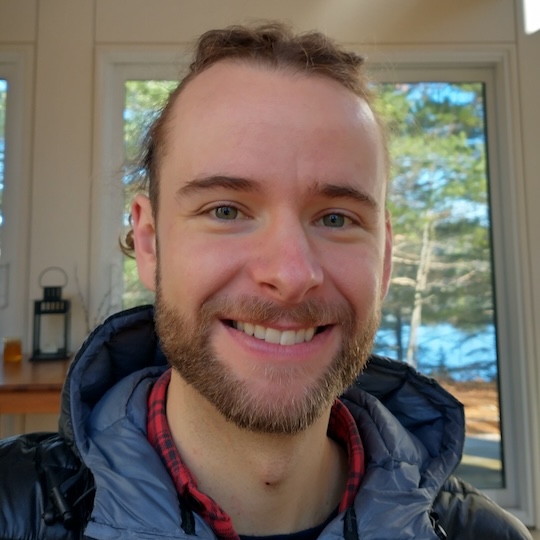
Ezekiel (Zeke) Williams
I am an applied math doctoral candidate working to uncover principles underlying learning, memory, and prediction, and how these phenomena arise from electrical dynamics inside the brain. My current work is focused on the role of randomness in neural computation, and how biological cell networks are able to learn even when the information to be learned is spread across long timescales. Given the similarity between models of the brain and AI, my work has some relevance to machine learning. Mathematically, most of my interests lie within dynamical systems theory, probability theory, and statistics. I also enjoy making music, the outdoors, Science for the People, and listening to Rage Against the Machine.
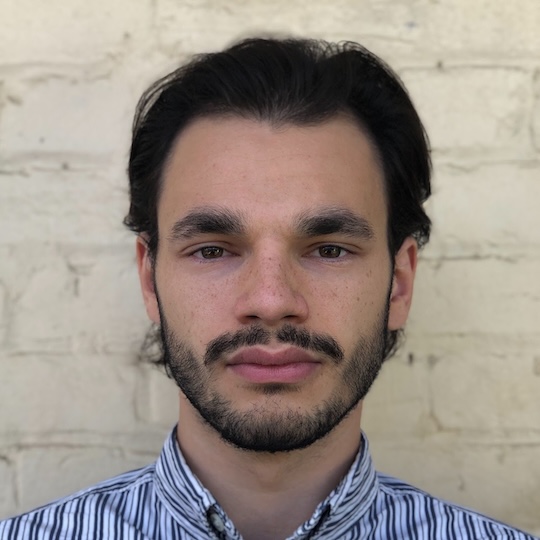
Léo Choinière
(co-supervised by Numa Dancause)
I am a PhD student in neuroscience at Université de Montréal. I am interested in brain-machine interfaces, neural dynamics, and motor control. My main project is aimed at optimizing parameters in the context of neurostimulation in preclinical animal models. In general, my research is situated at the intersection of and requires skills from both experimental and computational neuroscience.
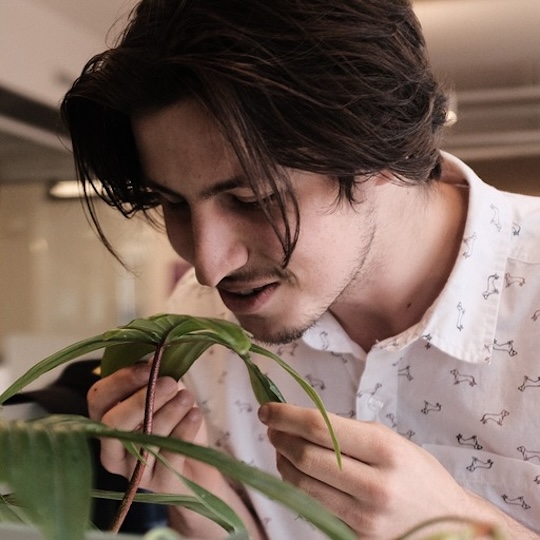
Léo Gagnon
I am interested in understanding general learning systems such as LLMs in order to contribute to making them better. Specifically, using ideas from meta-learning, Bayesian statistics and other relevant fields, I study foundational models in controlled settings in search of principles relating their pre-training data, mechanisms and architecture. I also like playing the guitar, spending calories, and asking deep questions.
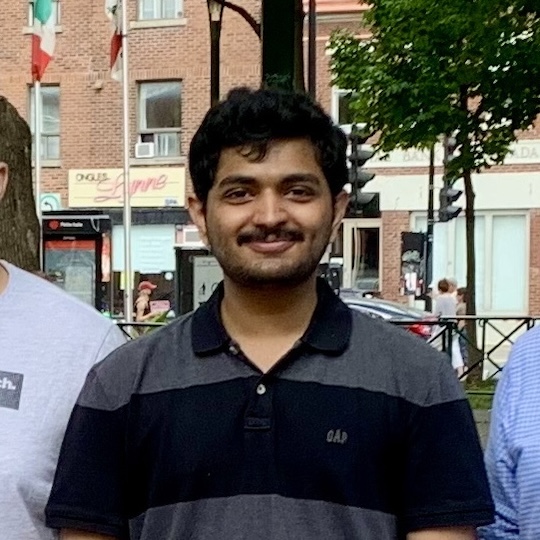
Nanda H Krishna
I am a PhD student working on problems at the intersection of Computational Neuroscience and Deep Learning. I am specifically interested in developing a theoretical understanding of how learning shapes computation in brains and artificial neural networks. I also work on building foundation models for neuroscience, with the goal of improving decoding in brain-computer interfaces. In my free time, you can find me obsessing over figures, watching cricket, reading comics, or coming up with Korean phrases that annoy Avery.
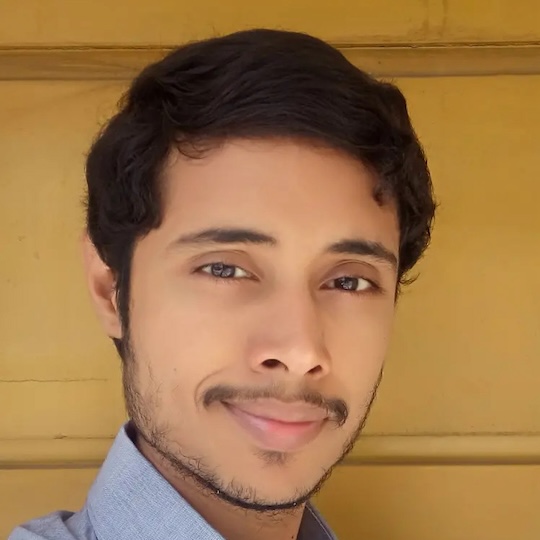
Pravish Sainath
(co-supervised by Lune Bellec)
I’m a PhD student at Université de Montréal. The purpose of my life and study is to better understand the nature and mechanisms of both natural and artificial intelligence. I am mostly interested in using computational and cognitive neuroscience to improve deep and reinforcement learning methods and applying deep learning methods to better understand the brain.
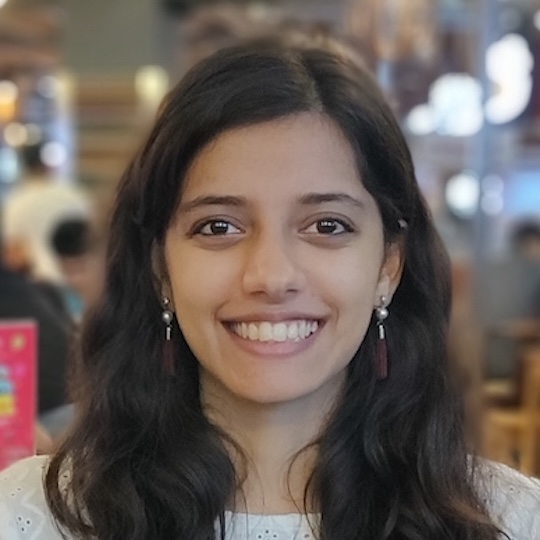
Sangnie Bhardwaj
(co-supervised by Hugo Larochelle)
I’m a PhD student at UdeM and also a researcher at Google Montreal, where I work on building robust and generalizable image representations. I am interested in achieving this by incorporating principles inspired by visual learning in human brains.
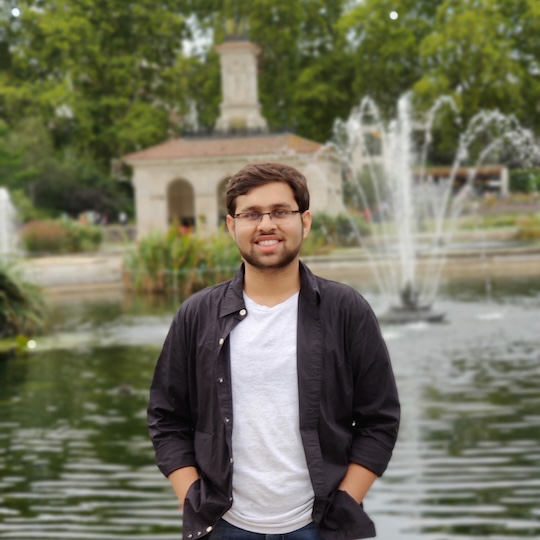
Sarthak Mittal
(co-supervised by Yoshua Bengio)
I am a PhD student interested in designing unified AI systems that are not constrained to solving a single task but learn general-purpose optimization routines implicitly in their inference mechanism, allowing them to generalize to novel tasks in a few-shot manner. In search of this goal, my explorations revolve around architectural inductive biases and representation learning to encourage compositional computations in Neural Networks as well as generative modeling and Bayesian inference methodologies akin to probabilistic meta-learning setups. A core guiding principle of my work is to efficiently model some crucial invariances underlying a vast majority of tasks, for example optimization procedures, and I believe that leveraging AI systems to model exactly these invariances would lead to few-shot generalization capabilities across novel tasks.
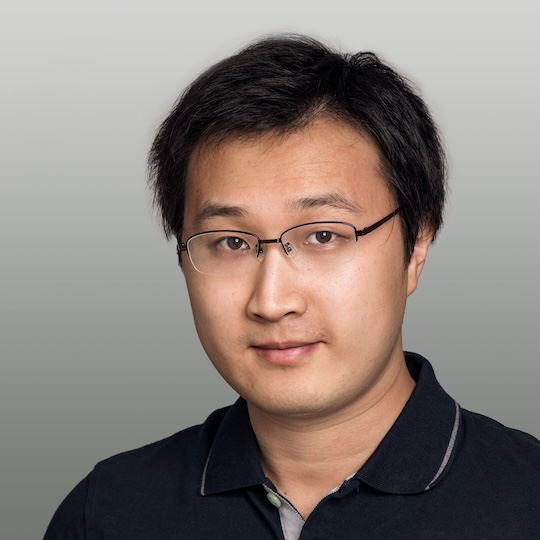
Ximeng Mao
I am a PhD student in computer science working on machine learning. I am widely interested in applying machine learning and deep learning methods to problems rooted from brain-machine interfaces, and I aim to leverage both deterministic and stochastic models for generic solutions. My current research focuses on meta learning for few-shot adaptation of personalized models and foundation models for neural decoding. My other interests include probabilistic inference, reinforcement learning and medical image analysis.
MSc students

Juan David Guerra
(co-supervised by Marco Bonizzato)
I am an MASc student in Software Engineering interested in the theory and applications of machine learning. My passion lies in developing state-of-the-art learning methods and translating them into impactful tools for healthcare, particularly in the field of neuroscience. I work on optimizing machine learning-driven neurostimulation strategies to support recovery following traumatic spinal cord injury. My current research focuses on the algorithmic development of Gaussian Processes to address the complexity of this problem. Aside from my academic pursuits, I enjoy playing volleyball and exploring a variety of musical instruments.
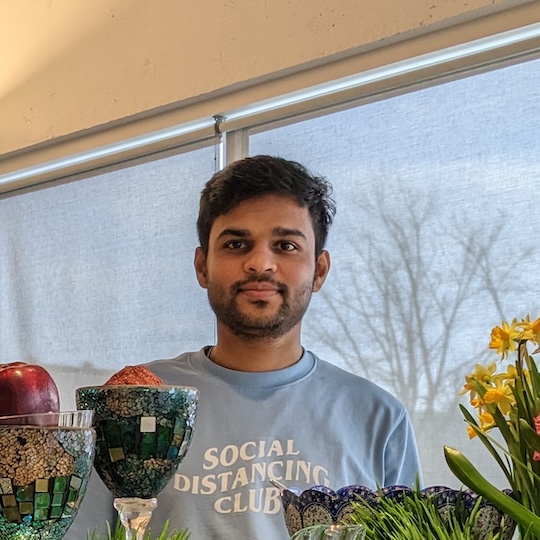
Tejas Kasetty
(co-supervised by Dhanya Sridhar)
I am a graduate student in Computer Science interested in understanding higher-order cognition and building AI systems that replicate them. My current research lies at the intersection of information theory, cognitive neuroscience, and deep learning, exploring compression as a unifying principle underlying various functionalities in biological and artificial systems, from perception to abstract reasoning. I am also interested in developing a mathematical framework that links structural motifs in neural connectivity to functionality through the lens of dynamics. Outside of research, I enjoy chess, climbing, snowboarding, and playing football.
Undergrads
Alumni
- Olivier Codol (Postdoc, co-supervised by Matthew Perich) → Research Scientist at Meta Reality Labs
- Roman Pogodin (Postdoc, co-supervised by Blake Richards) → Research Scientist at Google (Paradigms of Intelligence Team)
- Alexandre Payeur (Postdoc) → Research Scientist at Mila
- Maximilian Puelma Touzel (Postdoc, co-supervised by Yoshua Bengio) → Research Scientist at Mila
- Parikshat Sirpal (Postdoc, co-supervised by Numa Dancause)
- Jean-Pierre Falet (PhD, co-supervised by Yoshua Bengio) → Research Scientist at LawZero
- Amine Natik (PhD, co-supervised by Guy Wolf) → Quantitative Analyst at Constellation
- François Paugam (PhD, co-supervised by Lune Bellec)
- Laura Suárez (PhD, co-supervised by Bratislav Misic) → Research Scientist at Mila
- Thomas George (PhD, co-supervised by Pascal Vincent) → Researcher at Orange Innovation
- Giancarlo Kerg (PhD, co-supervised by Yoshua Bengio)
- Mohammad Pezeshki (PhD, co-supervised by Yoshua Bengio) → Postdoc at Meta
- Rose Guay-Hottin (MSc, co-supervised by Marco Bonizzato)
- Aude Forcione-Lambert (MSc, co-supervised by Guy Wolf)
- Bhargav Kanuparthi (MSc, co-supervised by Yoshua Bengio) → Research Scientist at Deep Genomics
- Samuel Laferrière (MSc)
- Léo Gagnon (Undergrad) → PhD student at Mila and UdeM
- Léo Choinière (Undergrad, co-supervised by Numa Dancause) → PhD student at Mila and UdeM
- Victor Geadah (Undergrad) → Master's student at Cambridge University
- Stefan Horoi (Undergrad) → PhD student at Mila and UdeM
- Martin Jammes-Floreani (Undergrad) → MSc student at Imperial College London
- Aude Forcione-Lambert (Undergrad, co-supervised by Guy Wolf)
- Ayesha Vermani (Visiting PhD student from Il Memming Park's lab at Champalimaud)
- Yuhan Helena Liu (Visiting PhD student from Eric Shea-Brown's lab at UW) → Postdoc at Princeton University
- Ryan Vogt (Visiting PhD student from Eli Shlizerman's lab at UW) → Postdoc at Mila and UdeM
- Colin Bredenberg (Visiting PhD student from Eero Simoncelli's and Cristina Savin's labs at NYU) → Postdoc at Mila and UdeM
- Vivian White (Visiting undergrad from Kameron Decker-Harris' lab at WWU, co-supervised by Guy Wolf)
- Param Raval (Intern with BIOS Health)
- Subhrajyoti Dasgupta (Intern with BIOS Health)
- Rose Guay-Hottin (Intern with BIOS Health)
- Nizar Islah (Intern with BIOS Health)
- Olivier Tessier-Larivière (Intern with BIOS Health)
